Table of Contents
With increasingly complex supply chain landscape, efficient logistics scheduling is more critical than ever. Companies continually strive to optimize operations, reduce costs, and enhance customer satisfaction. Amid these challenges, logistics scheduling software emerges as a powerful tool, transforming how businesses manage and execute their logistics operations.

Logistics scheduling software leverages advanced algorithms, real-time data, and automated processes to streamline the planning and execution of transportation and distribution activities. From coordinating shipments and managing fleets to optimizing routes and ensuring timely deliveries, this technology offers a comprehensive solution to the multifaceted demands of modern logistics.
Integrating logistics scheduling software into businesses’ operations can significantly improve efficiency, accuracy, and responsiveness. This blog delves into the key features, benefits, and considerations of adopting logistics scheduling software, offering insights into how this technology can revolutionize supply chain management and position your company for sustained success in a competitive market.
Understanding Different Types of Logistics Scheduling Software
Exploring the landscape of logistics scheduling software uncovers a range of applications, each designed for specific logistics functions. These tools are integral to the seamless coordination of supply chain activities.
Transportation Management Systems (TMS)
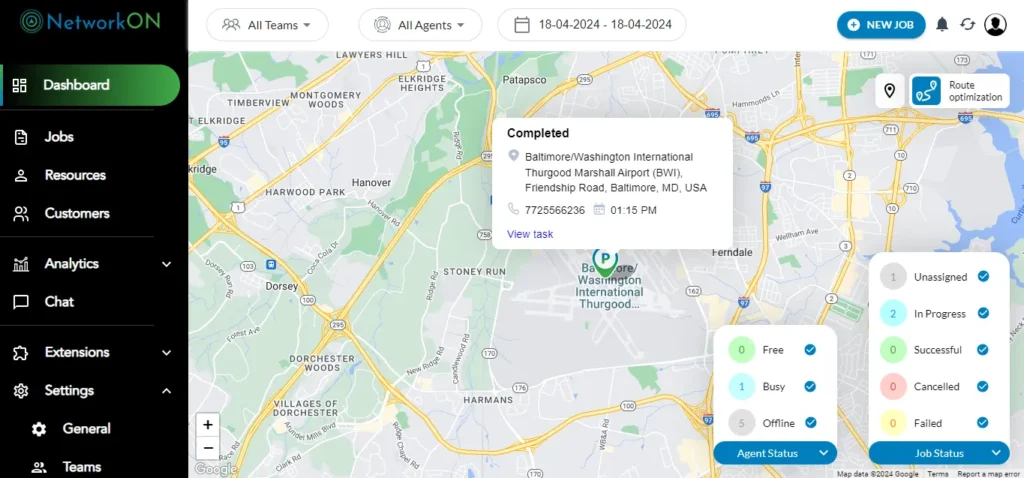
Transportation Management Systems specialize in the planning, executing, and optimizing the physical movement of goods. A TMS provides real-time freight tracking, rate comparison, and freight bill auditing. Users can expect reduced shipping costs through efficient route planning and load consolidation.
Warehouse Management Systems (WMS)
Warehouse Management Systems are critical for inventory control and warehouse operations. A WMS automates receiving, picking, packing, and shipping operations, enhancing accuracy and efficiency. An effective WMS maximizes warehouse productivity by facilitating the quick turnover of goods and optimizing storage space.
Route Optimization Tools
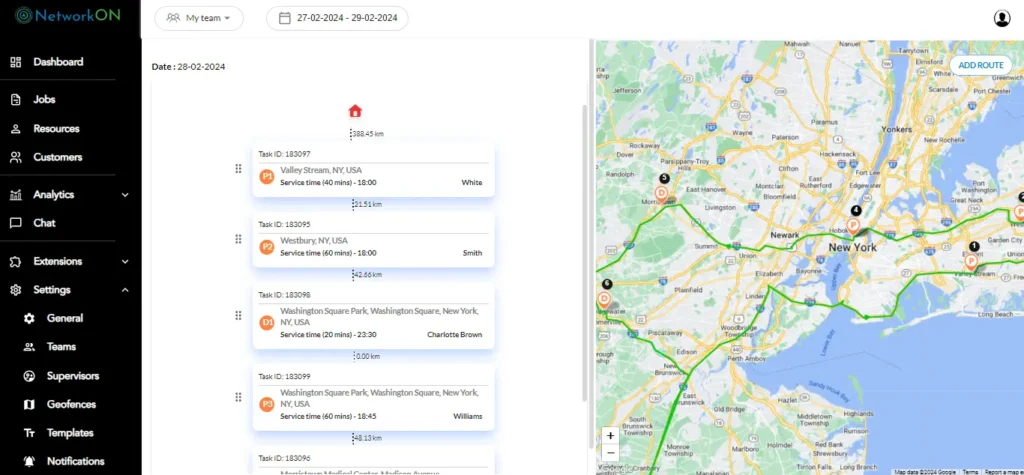
Route optimization tools ensure the most efficient paths are chosen for delivery vehicles. These tools consider distance, traffic patterns, and delivery time windows to minimize driving time and reduce fuel consumption, leading to cost savings and service improvements.
Distribution Center Scheduling Applications
Scheduling applications for distribution centers precisely time inbound and outbound freight movements. This synchronization reduces wait times, accelerates loading and unloading processes, and avoids congestion. These systems can adapt to fluctuating demand levels, maintaining efficiency during peak and slow periods.
- A TMS streamlines freight movements and cuts expenses by optimizing routes.
- A WMS elevates warehouse operational accuracy and productivity.
- Route optimization tools directly diminish drive time and operational costs.
- Distribution center scheduling applications maintain efficiency and throughput despite demand variability.
Core Features of Logistics Scheduling Software That Benefit Delivery Operations
Logistics scheduling software equips organizations with key functionalities designed to optimize delivery efficiency. As supply chains become more complex and customer expectations rise, leveraging robust software tools becomes necessary to maintain a competitive edge.
Real-Time Tracking and Visibility
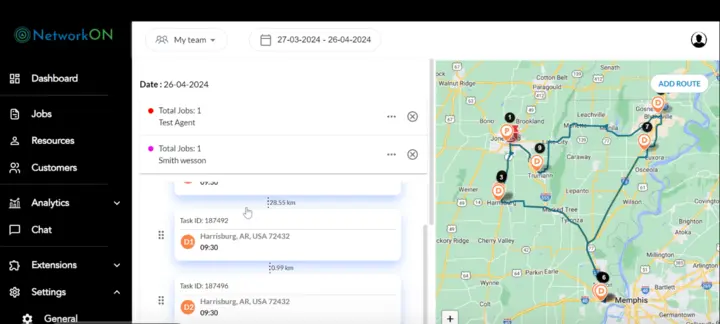
High-performing logistics operations provide stakeholders with tracking information as shipments move through the supply chain. Companies can utilize software that offers real-time data to monitor vehicle locations’ cargo status and anticipate delivery times.
Route Optimization for Timely Deliveries
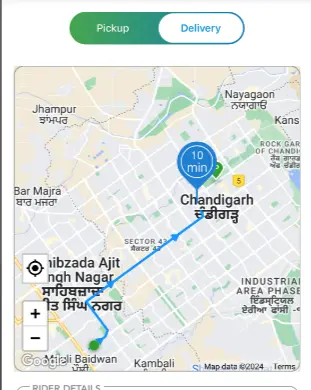
Optimized routing algorithms calculate the most efficient delivery paths, considering traffic patterns, distances, and vehicle capacities. This optimization ensures shipments arrive at their destinations quickly while reducing fuel consumption and operational costs.
Last-Mile Delivery Solutions
Efficiently managing the last leg of the delivery process can distinguish between profit and loss. Logistics scheduling software provides specialized tools for managing this critical phase by accommodating delivery windows, customer preferences, and potential roadblocks.
Automated Notifications and Updates to Customers
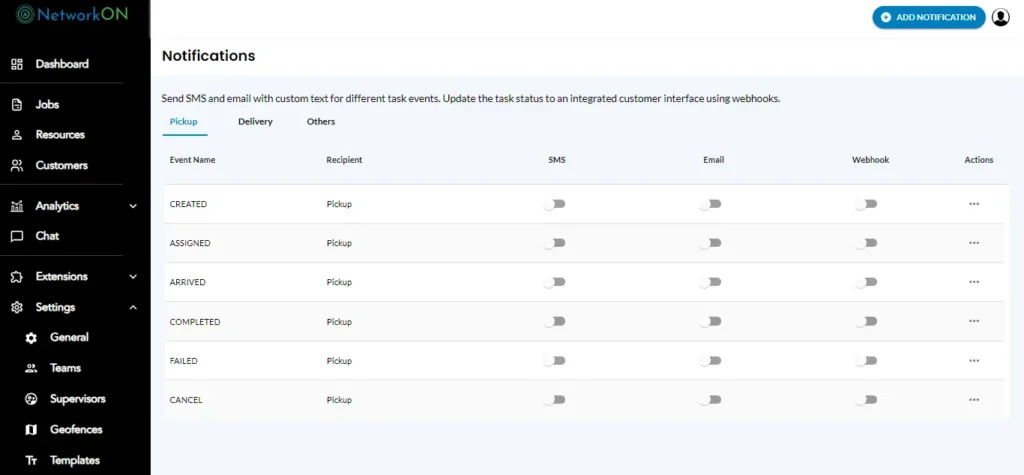
Proactive communication fosters customer trust. Software capabilities include automatically dispatching status updates and alerts to customers, informing them about their delivery progress and expected arrival time.
These systems enable businesses to streamline operations and increase transparency throughout their delivery network.
Investing in software with these essential components allows organizations to meet the rising demands of astute customers and complex supply chains.
Logistics scheduling software is a cornerstone of modern delivery systems, with direct benefits including reduced operational time, enhanced customer satisfaction, and data-driven route planning.
The Transformative Effects of Adopting Logistics Scheduling Software
Businesses implementing logistics scheduling software observe a substantial shift in their operational landscape. Such tools facilitate the refinement of processes that extend beyond basic transportation tasks.
Surging Operational Efficiency
Logistics scheduling software systematically enhances productivity by streamlining appointment bookings, route planning, and load scheduling. These systems analyze numerous variables in real time, adjusting to changes and disruptions in the supply chain. Firms experience reduced idle time, quicker turnaround, and the capacity to handle more orders effectively.
Cost Reduction and Optimized Schedules
Utilizing sophisticated algorithms, logistics scheduling software creates schedules that minimize overheads. Businesses witness reduced fuel consumption, overtime costs, and less wear on vehicles. The ripple effect of these reductions is magnified over time, leading to a significant decrease in overall expenditure.
Enhanced Asset Utilization
- Owners and fleet managers gain from improved visibility and control over their resources.
- Vehicles and drivers are utilized to their full potential, with less downtime and increased return on investment.
- Software-enabled insights allow for proactive maintenance and asset management, forestalling costly breakdowns and extending the lifespan of business assets.
Businesses adapting to logistics scheduling software unlock operational potentials that were previously unattainable, underpinning a new era of efficiency and strategic asset management.
Data-Driven Decision Making with Logistics Scheduling Software
Logistics scheduling software enables businesses to leverage data for predictive analytics and strategic planning. Demand forecasting, a function empowered by sophisticated algorithms, enhances the accuracy of inventory control. Predictive analytics support informed decision-making, transforming historical data into actionable insights to meet future demand efficiently.
Logistics scheduling software provides clarity on operations through data analytics and reporting capabilities. Clear, actionable reports reveal patterns and inefficiencies, facilitating continuous improvement. Comprehensive data analysis informs logistical strategies, allowing businesses to optimize their service offerings for maximum effectiveness.
Integration with Enterprise Resource Planning (ERP) systems expands the value of logistics scheduling solutions. A seamless connection with ERP systems ensures that real-time data informs all business aspects, from supply chain management to customer service. Unified data presents a holistic view of operations, enhancing decision-making processes across the board.
In addition to these preventative measures, logistics scheduling software often features proactive monitoring capabilities. Continuous monitoring and regular system updates can detect and address vulnerabilities before they are exploited. This approach not only secures the system but also maintains trust with clientele, who are increasingly concerned about the privacy and security of their information.
As cyber threats evolve, logistics companies utilizing scheduling software can rest assured that their data handling and delivery systems are fortified against an ever-changing landscape of security risks.
Unleashing Potential: Why Customization and Integration in Logistics Scheduling Software Matter
Owners and managers of logistic operations confront unique challenges and objectives. Recognizing this, logistics scheduling software must offer broad customization capabilities, ensuring a seamless fit with their businesses’ distinctive requirements. A solution that aligns with particular processes and methodologies transforms operations, delivering augmented efficiency and a competitive edge.
Integration remains critical for logistics systems to communicate effectively with existing infrastructure. Seamless data flow among various logistics management tools streamlines end-to-end operations. As a result, this smooth connectivity bolsters reaction time to market changes and enhances strategic planning.
- Custom-tailored solutions match the distinct workflow elements of any logistic business, yielding optimized processes.
- Robust integration capabilities form a cohesive network with other software tools, enhancing visibility and control.
- Direct involvement of owners and managers in the selection process predicates the aligning of software capabilities with business objectives.
By employing logistics scheduling software that adheres to this two-fold criterion of customization and integration, businesses can expect a trajectory toward increased productivity and profitability.
Innovations in Logistics: AI and Machine Learning
Advances in artificial intelligence (AI) and machine learning (ML) have revolutionized logistics scheduling software. These technologies enable sophisticated analysis and intelligent decision-making, transforming the efficiency of supply chain operations.
- AI and ML capabilities are now integral components of logistics software, enhancing data processing and offering real-time insights for optimal scheduling.
- In logistics, AI applications range from autonomous vehicles and drones for delivery to advanced warehouse robots that streamline picking and packing processes.
- Predictive analytics powered by ML algorithms forecast demand, anticipate potential disruptions, and suggest actionable strategies to mitigate risks, ensuring proactive management of logistics networks.
Imagine fleets of trucks that autonomously adjust their routes in response to traffic conditions or changes in delivery priorities. Consider a warehouse where intelligent robots predict the need for inventory restocking before a shortage arises. These scenarios are not speculative but current realities due to integrating AI and ML into logistics scheduling software.
Logistics professionals utilizing AI-enriched software can identify patterns and correlations in large data sets that would be invisible to human analysis. The result is a more agile, transparent, and customer-responsive supply chain. For instance, by analyzing historical data, AI can predict seasonal fluctuations, allowing companies to prepare in advance for surges in demand.
Furthermore, ML models continuously improve through iterative learning, enhancing their predictive accuracy. This continuous improvement cycle ensures that logistics systems become more efficient and responsive with each transaction processed.
The Shift to Cloud-Based Logistics Solutions
As industries evolve, logistics operations are transitioning to cloud-based platforms. These solutions transform traditional practices, offering flexibility and scalability that on-premise systems cannot match. Companies are adopting cloud-powered logistics scheduling software to leverage these advancements and stay ahead in a competitive landscape.
Remote Management Activities Enhanced by the Cloud
Cloud-based systems facilitate remote management activities, allowing logistics managers to orchestrate operations from anywhere. This real-time oversight capability leads to proactive decision-making. Managers can respond to changes immediately, whether altering routes in response to traffic or adjusting schedules to accommodate last-minute customer requests.
Security in the Cloud: Addressing Concerns
Despite its many advantages, cloud computing raises concerns about data security. However, providers are constantly enhancing their security measures. Encryption, access controls, and regular audits form a robust defense against potential breaches. These security practices ensure that sensitive information remains protected within the cloud environment.
The Evolution of Customer Relationship Management Through Logistics Software
Logistics scheduling software has transformed the Customer Relationship Management (CRM) landscape. By deploying these robust systems, businesses have redefined how they interact with clients. The effects ripple through CRM strategies, paving the way for more nuanced and tailored customer engagement.
Impact on CRM Strategies
CRM strategies have been significantly modified with the adoption of logistics scheduling software. Traditionally, manual processes for tracking customer interactions have been streamlined and automated, ensuring that all touchpoints are captured and leveraged effectively. Detailed analytics enable the creation of personalized customer experiences, boosting satisfaction and retention rates.
Enhancing Communication with Real-time Updates and Visibility
Customers expect and appreciate transparency. Logistics scheduling software enables companies to provide real-time updates and full visibility into service delivery. This fosters a transparent communication channel where customers stay informed on the status of their deliveries, reducing anxiety and enhancing trust.
Building Trust Through Consistent Service Delivery
Trust forms the cornerstone of customer relationships. Consistency in service delivery, facilitated by logistics scheduling software, helps firmly establish this trust. Customers can rely on punctual deliveries and accurate information, strengthening loyalty and encouraging repeat business.
The Role of Logistics Scheduling Software in Supply Chain Management (SCM)
The integration of logistics scheduling software within Supply Chain Management (SCM) fosters a synergistic environment where the flow of goods, from procurement to delivery, achieves higher efficiency. This software elevates SCM to new performance levels by enabling better planning, execution, and optimization of operations.
Supply chain visibility is a cornerstone for successful management, and logistics scheduling software is a crucial foundation. With advanced tracking capabilities, stakeholders can trace products in real-time, enhancing coordination across diverse supply chain activities. Real-time data access allows managers to promptly identify and respond to potential disruptions, thereby streamlining the supply chain process.
Logistics scheduling software also bridges the operational facets of Transportation Management Systems (TMS) and Warehouse Management Systems (WMS). The software ensures that warehouse operations are perfectly synchronized with transportation schedules by enabling seamless interaction between these systems. This harmonization reduces delays, increases turnaround times, and optimizes resource allocation.
- An effective scheduling system leverages data from SCM to refine logistics operations, ensuring that material transport meets the dynamic needs of the supply chain.
- Advanced algorithms within the software anticipate logistical challenges, allowing for proactive measures in freight handling and itinerary planning.
- Employing sophisticated logistics scheduling software results in a more resilient SCM capable of withstanding volatile market conditions and customer demands.
By strategically implementing logistics scheduling software, companies can strengthen the interconnected frameworks of their supply chain, guaranteeing a more robust and responsive operation network.
Enhancing Sustainable Practices with Logistics Scheduling Software
With a surge in global awareness about environmental issues, logistics scheduling software emerges as a gateway to sustainable logistics operations. These platforms are a key player in the shift towards green logistics by optimizing routes and improving vehicle utilization.
Promoting Green Logistics Through Efficient Scheduling
Efficient scheduling is a linchpin for eco-friendly logistics operations. Logistics scheduling software arranges pickups and deliveries to maximize vehicle capacity and minimize idle time. This increased efficiency directly translates into fewer emissions, as optimal schedules ensure the least fuel consumed for transportation tasks.
Reduction of Carbon Footprint Through Route Optimization
One of the most powerful features of logistics scheduling software is its capacity to determine the most efficient routes for delivery. By minimizing the distance driven and avoiding traffic congestion, the software can significantly reduce the carbon emissions for which the logistics industry is often responsible. Implementing this technology has a compounding effect; as more companies employ route optimization, the overall reduction in vehicle emissions contributes substantially to environmental preservation efforts.
Addressing Last-Mile Delivery Challenges with Innovative Scheduling Solutions
Last-mile delivery emerges as one of the most intricate components of the transportation and logistics industry. Beyond mere movement of goods, it encompasses customer satisfaction, accuracy of service, and timely delivery, each factor intertwined within the complex fabric of logistics operations. Addressing these nuances demands more than basic planning; it necessitates sophisticated logistics scheduling software.
Analysis of Last-Mile Delivery Complexities
Traditional logistical approaches falter under the intricate demands of last-mile delivery. Urban traffic conditions, the varying expectations of recipients, and an exceedingly competitive e-commerce landscape intensify the complexity. Moreover, a failure in this final leg can disproportionately affect customer loyalty and brand reputation.
The Role of Software in Overcoming These Challenges
Logistics scheduling software proves transformative, turning the chaotic nature of last-mile delivery into a manageable, streamlined process. Automating dispatch, optimizing route planning, and providing real-time updates to customers and managers alike are technological tools that have refined the delivery process to a science. Real-time tracking enables proactive management of unforeseen delays, ensuring agile response to on-the-ground scenarios.
Streamline Your Load Planning and Consolidation
Advanced scheduling tools redefine load planning and consolidation processes. Logistics scheduling software equips businesses with the capability to automate and optimize these critical tasks. Automating load planning directly relates to the efficient utilization of vehicle space. This efficiency translates to more orders delivered with fewer trips, effectively reducing fuel consumption and wear and tear on transport vehicles.
The Advantages of Automated Load Planning
- Maximizes cargo space through intelligent load assignments, ensuring each vehicle carries the optimal load.
- Adjusts to order modifications, vehicle availability, and unforeseen scheduling changes in real-time.
- Decreases time spent on manual planning, allowing staff to focus on other productivity-enhancing activities.
Effective Consolidation for Reduced Transportation Costs
Streamlined consolidation is a ticket to lowering transportation expenditures. Logistics scheduling software can create direct routes by strategically combining shipments to similar destinations. This consolidation leads to fewer miles driven and, thus, slashes fuel expenses. Additionally, it minimizes the number of vehicles on the road, reducing emissions and the demand for drivers in a sometimes scarce market.
Exploring the Future of Automation in Logistics through Scheduling Software
Logistics scheduling software is transforming industry operations. Automation drives this evolution, reshaping how goods are moved around the globe. Advances in this technology promise to redefine competitiveness and efficiency in logistics.
Current Trends in Logistics Automation
Scheduling software in logistics leans heavily on automation, embracing real-time data analysis, predictive algorithms, and sophisticated decision-making capabilities. Robots and autonomous vehicles are becoming commonplace in warehouses and distribution centers. Drone technology for swift parcel delivery is now a tangible reality. These trends indicate a move towards a more intelligent, autonomous supply chain.
- Real-time route optimization ensures timely deliveries despite unexpected conditions;
- Automated storage and retrieval systems enhance warehouse efficiency.
- Drones and autonomous robots signal a paradigm shift in package handling.
The Potential Future Developments in Logistics Scheduling
The horizon for logistics scheduling software is vast. Machine learning models are expected to perfect prediction accuracies, automating complex decision processes such as supplier selection and delivery slot allocation. Blockchain technology might soon underpin transaction security and traceability, leading to unprecedented transparency.
- Machine learning evolves to automate more nuanced tasks;
- Integration of blockchain to solidify security and transparency;
- Quantum computing has the potential to solve complex logistical challenges at unprecedented speeds.
Assessment of What These Changes Mean for Businesses
Emergent changes in automation will compress turnaround times, drastically slash operating costs, and vastly improve service delivery. Logistics providers must adapt to these technologies to maintain an edge. Scheduling software sits at the core of this transformation, providing the necessary agility for businesses to navigate an increasingly complex logistics landscape.
Organizations will leverage these innovations to offer highly personalized logistics experiences. Data analytics powered by scheduling software automates customer service responses, predicts demand patterns, and informs strategic decisions. Ultimately, this ushers in an era of logistics that is more responsive, resilient, and aligned with customer expectations.
Key Takeaways
- Logistics scheduling software enhances operational efficiency: By automating planning, optimizing routes, and providing real-time tracking, this technology significantly reduces costs, fuel consumption, and operational expenses.
- Customer satisfaction soars with real-time updates: Accurate delivery windows and proactive communication build trust and loyalty, improving the overall customer experience.
- Sustainable practices reduce carbon footprint: Route optimization and load consolidation promote eco-friendly operations, helping businesses meet environmental goals.
- Data-driven decisions optimize supply chain management: Advanced analytics and ERP integration enable informed forecasting and inventory optimization.
- Future-proof operations with AI and cloud solutions: Embracing automation and innovative technologies ensures logistics operations remain competitive and adaptable to market demands.
Conclusion: Unleash the Full Potential of Your Logistics Operations
Logistics scheduling software is an important part of modern logistics operations, seamlessly synchronizing tasks, resources, and timelines. By harnessing the power of advanced scheduling tools, businesses gain the agility to respond to dynamic market demands, optimize routes, and dispatch resources effectively. Such capabilities are beneficial and essential in sculpting a competitive edge in today’s fast-paced markets.
Reflect on the sophistication logistics scheduling software brings to delivery and service excellence. With real-time tracking and updates, customer satisfaction climbs, as does the efficiency of each operation. The ripple effect of these improvements permeates the entire supply chain, yielding optimized use of assets, reduced waste, and enhanced sustainability measures.
Adopting advanced scheduling systems offers a gateway to elevated performance for logistics businesses on the brink of transformation. Embrace these technologies to navigate the complexities of logistics with precision and foresight. Consider the broad spectrum of benefits, from improved SCM to the frontiers of automation beckoning the future of logistics.
- Are your delivery operations harnessing the full potential of digital enhancements?
- Could your customer relationships strengthen through more accurate and responsive service?
- Is your supply chain fully optimized, resilient, and adaptable to change?
Logistics scheduling software is your answer. Unveil its wide array of solutions and pave the way for a more robust and responsive logistics network. Deploy strategic scheduling systems and witness your logistics management ascend to unparalleled proficiency levels.
Elevate your business’s operations with NetworkON’s state-of-the-art logistics scheduling software! Explore our comprehensive product guides, join engaging webinars with industry experts, and experience transformative solutions that streamline your processes and boost efficiency.
Take your chance to be at the forefront of logistics innovation now and secure your place in the vanguard of logistics efficiency with NetworkON!
Frequently Asked Questions
What are the main benefits of implementing logistics scheduling software in my business?
Implementing logistics scheduling software can enhance efficiency by automating planning and route optimization, reduce operational costs through better resource utilization, improve customer satisfaction with real-time tracking and updates, and support sustainable practices by minimizing carbon emissions. Additionally, it enables data-driven decision-making and prepares your operations for future advancements in AI and automation.
How does logistics scheduling software help in improving customer satisfaction?
Logistics scheduling software improves customer satisfaction by providing real-time updates and accurate delivery windows, ensuring timely and reliable service. Automated notifications inform customers about their delivery status, fostering transparency and trust. Efficient last-mile delivery management further enhances the customer experience by accommodating preferences and minimizing delays.
Can logistics scheduling software contribute to sustainability efforts?
Yes, logistics scheduling software contributes to sustainability efforts by optimizing routes and consolidating loads, which reduces fuel consumption and carbon emissions. By improving vehicle utilization and minimizing unnecessary trips, businesses can significantly lower their environmental impact and meet regulatory standards for green logistics practices.
How does logistics scheduling software integrate with other systems like ERP or TMS?
Logistics scheduling software can seamlessly integrate with Enterprise Resource Planning (ERP) systems, Transportation Management Systems (TMS), and Warehouse Management Systems (WMS). This integration ensures real-time data flow across different platforms, enhancing visibility and coordination throughout the supply chain. It allows for comprehensive management of logistics operations, from inventory control to transportation and delivery, providing a holistic view of business processes.
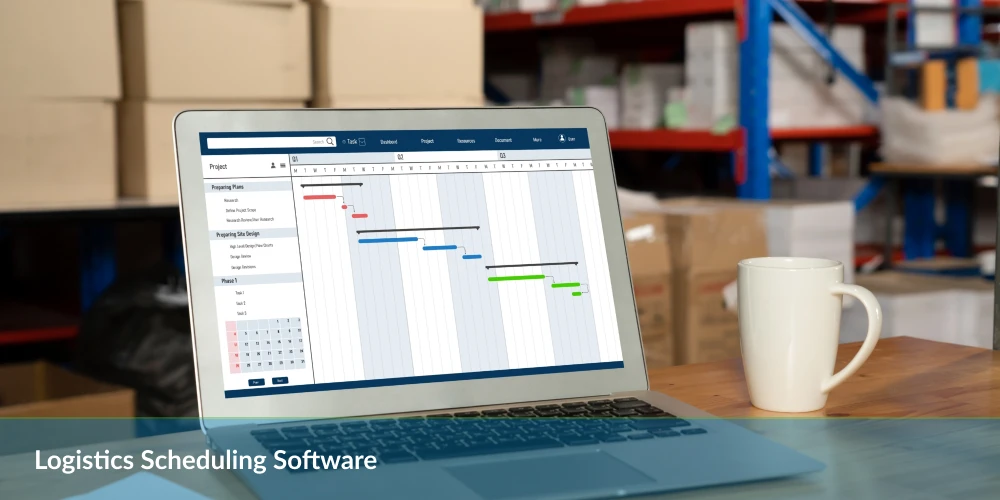




0 Conversations